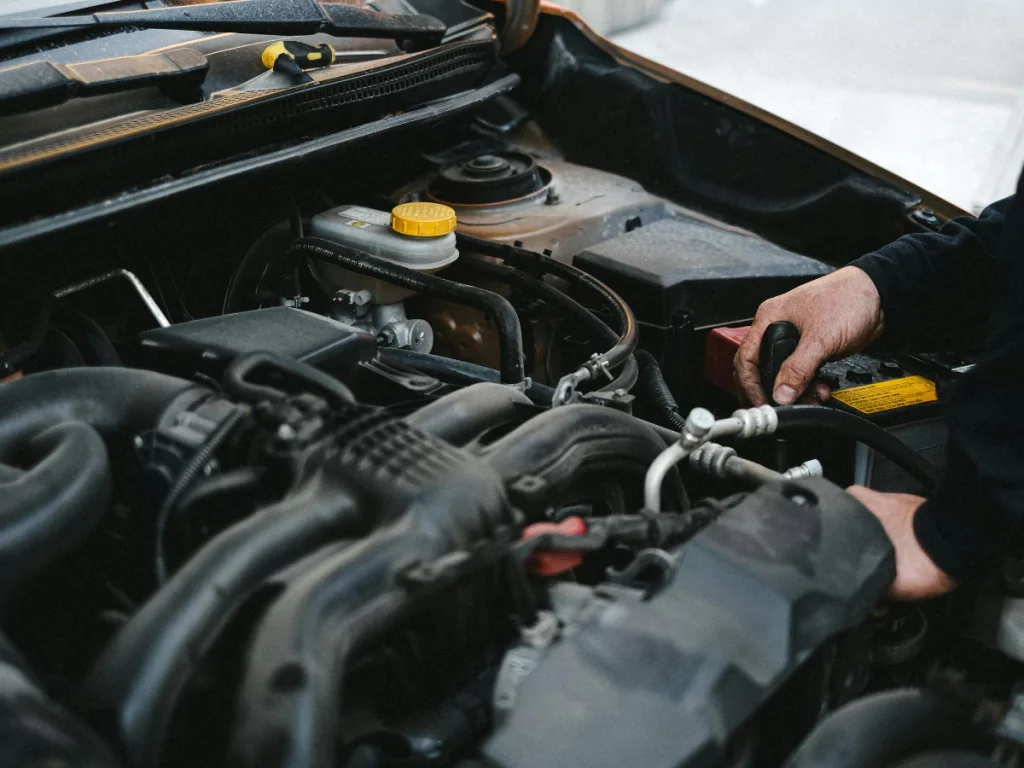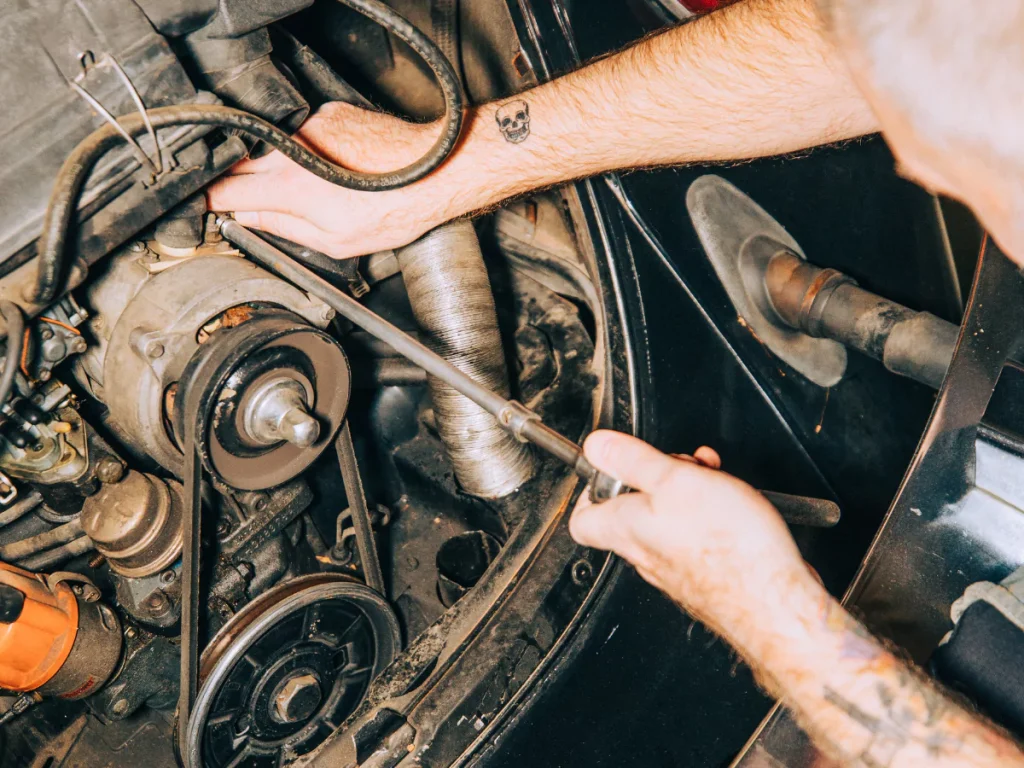Why Used Car Inspections Are Non-Negotiable
Buying a used car isn’t just about finding a good deal—it’s about making a smart, informed decision. A car might look great on the surface, but beneath the hood or under the chassis, hidden issues could be waiting to cost you thousands. That’s where a professional inspection comes in. It’s your insurance policy against regret. Whether you’re purchasing from a private seller or a dealership, inspections help you uncover any serious mechanical, structural, or cosmetic problems before money changes hands.
A pre-purchase inspection (PPI) protects you from being stuck with a vehicle that has been in accidents, flooded, or simply neglected. It’s not just for peace of mind—it’s for your financial safety too. If you’re financing or planning to keep the car for years, a proper inspection ensures that your investment is sound.
What’s Typically Checked During a Used Car Inspection?
Used car inspections are thorough for a reason. A trained technician evaluates everything from the wheels to the roofline, checking for signs of wear, damage, or poor maintenance. Here’s what usually gets inspected:
Exterior Components
The inspector checks for dents, scratches, mismatched paint, rust spots, and signs of bodywork that could indicate previous accidents. They also examine the windshield for chips and cracks, head and tail lights for operation and fogging, and the alignment of panels which could hint at frame damage.
Interior Functionality
The cabin gets a complete once-over. Inspectors test seat adjustments, seatbelt function, dashboard warning lights, the condition of upholstery, door locks, window operation, stereo system, heater, and air conditioner. Even smells are important—they could hint at mold or flood damage.
Under the Hood
This is where the heart of the car lives. The engine and surrounding systems are inspected for leaks, frayed belts, cracked hoses, battery health, and fluid conditions (oil, coolant, brake fluid, power steering fluid). The transmission is also checked for shifting smoothness and noise.
Diagnostic Scanning
Modern vehicles are computers on wheels. Technicians use diagnostic tools to scan the vehicle’s onboard computer system. They check for hidden codes that might not trigger dashboard lights yet but indicate pending issues like oxygen sensor failure, misfires, or transmission faults.

When Should You Get a Pre-Purchase Inspection?
Timing is everything. Don’t wait until after you’ve signed paperwork or made a payment. The best time to get an inspection is before you commit.
Before Buying From a Dealership
Dealerships often do their own inspections, but those can be superficial or biased. A third-party inspection ensures you’re not relying solely on their word. Even with a warranty, it helps you negotiate a better deal or spot hidden issues upfront.
When Purchasing Through Private Sellers
Private sellers aren’t held to the same standards as dealers. They may not disclose every detail, intentionally or not. An inspection gives you the upper hand. If the seller resists, that’s a red flag.
Even If the Car “Looks Fine”
Some of the worst car problems hide in plain sight. Clean interiors and shiny exteriors can disguise engine issues, frame damage, or worn-out components. Don’t be fooled by appearances—have it checked professionally.
Independent Mechanic vs. Specialized Inspection Center
Both options can work, but they have pros and cons.
Pros and Cons of Independent Mechanics
If you trust a local mechanic and they have experience with the vehicle’s make and model, it might save you money. But not all shops have the latest diagnostic tools or inspection protocols. Some may also focus on repairs rather than impartial inspections.
Why Certified Centers Are Often the Better Choice
Certified centers specialize in inspections. Their staff is often ASE-certified, and they use updated tools and checklists that cover everything from emissions to electrical systems. Their reports are usually more detailed and easier to understand.
Texas First Auto Inspections: Your Go-To in Westbranch
If you’re in Westbranch, there’s one name that stands out: Texas First Auto Inspections.
What Sets Texas First Auto Inspections Apart
Texas First Auto Inspections is known for its comprehensive reports, friendly service, and high-tech diagnostic equipment. They take their time with every vehicle and focus solely on inspections—not repairs—so there’s no upsell or bias.
Services Tailored for Used Car Buyers
They offer pre-purchase inspections, post-purchase diagnostics, emissions testing, and vehicle history verification. You’ll get a printed or digital report with clear photos, comments, and repair suggestions.
How to Book an Appointment
Booking is simple. Visit their website, call, or walk in. They’ll even coordinate with the seller or dealership to set up the inspection time.
Mobile Inspection Services: Are They Reliable?
Mobile services can be helpful, especially if the car is far from a shop. But they’re not always as thorough.
Convenience vs. Thoroughness
Mobile inspectors can check most exterior and interior components, but they often lack lifts or full diagnostic tools. If you’re buying locally, it’s better to take the vehicle to a stationary center like Texas First Auto Inspections for a deeper look.
Signs the Seller Might Be Hiding Something
Be cautious if you notice:
Incomplete Service Records
If the seller says “it was regularly serviced” but has no proof, that’s a problem. Good owners keep maintenance records.
Odd Behavior During the Test Drive
Sellers who avoid highways, insist on short drives, or distract you with conversation may be hiding drivability issues.
How Much Does a Used Car Inspection Cost in Westbranch?
Prices range from $125 to $250. The cost varies based on the level of inspection, the location, and whether it includes a diagnostic scan. It might feel like an added expense, but it’s a smart investment compared to the risk of surprise repairs.

DIY Checks Before You Head to the Pros
Doing a quick DIY check can help you decide if a car is even worth taking for a professional inspection.
Quick Look at the Tires, Lights, and Fluids
Check tire tread using a penny, test all exterior lights, and lift the hood to check oil color and level. Also look under the car for fresh fluid leaks.
Warning Lights You Shouldn’t Ignore
If any warning light is on—especially the check engine, ABS, or airbag light—the car needs a scan before you commit. These systems are expensive to fix.
Should You Still Inspect a Certified Pre-Owned Vehicle?
Yes. Certified doesn’t mean perfect. Dealers may do a 100-point inspection, but that doesn’t always include diagnostics or frame checks. Have an independent party double-check it.
What Happens If the Car Fails the Inspection?
If serious issues are found, use the report to negotiate. Some sellers will fix problems or drop the price. If they don’t, it might be better to walk away. There are always more cars—you just need the right one.
Texas First Auto Inspections Serving the Westbranch Community and Beyond in Houston
Texas First Auto Inspections is dedicated to serving the diverse needs of the local community of Houston, including individuals residing in neighborhoods like Westbranch. With its convenient location near landmarks such as the LSC-Westway Park Technology Center and major intersections like Heatherford Dr. & Raindrop Hollow Dr. (coordinates: 29.838806190377444,-95.55402103325459), we offer used car inspection services Houston.
Get Used Car Inspection Services at Westbranch Now
Navigate from Westbranch to Texas First Auto Inspections Now
Secure Your Investment with Confidence
An inspection isn’t just a step in the process—it’s a must. It turns an emotional purchase into a logical one. And if you’re in Westbranch, there’s no better choice than Texas First Auto Inspections. Their experience, transparency, and thorough approach make them your safest bet.
FAQs
1. How long does a used car inspection take?
Most inspections take between 1 to 2 hours, depending on the complexity of the vehicle.
2. Can I attend the inspection?
Yes, most shops, including Texas First Auto Inspections, welcome buyers to observe or wait in the lounge.
3. Will I get a written report?
Definitely. You’ll receive a detailed report with notes and photos. Great for record-keeping or negotiating.
4. Do mobile inspectors have diagnostic tools?
Some do, but they often lack the comprehensive systems found in professional inspection centers.
5. Is an inspection worth it for a cheap car?
Yes. Even budget cars can have costly hidden problems. Spending $150 to avoid a $1,000 mistake is worth it.





